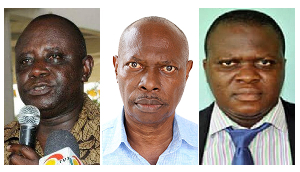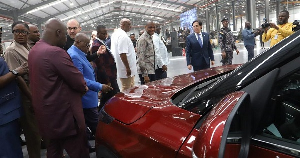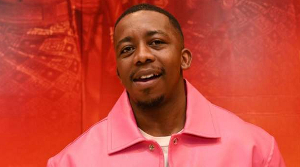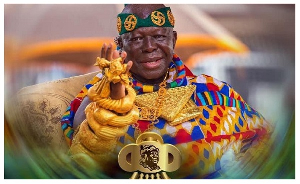Soccer News of Tuesday, 5 March 2002
Source: Accra Mail Online
Measures to revive Ghana football
Ghana football is at the crossroads. It seems to have come up against a wall. There is a general feeling of helplessness and despair as both football administrators and beneficiaries look on not knowing exactly where to turn and what to do to restore the country’s football image.
But this needn’t be so. Countries like Cameroon, Senegal, and Tunisia among others that now in the limelight have gone through similar crises before.
Ghana therefore does not need to re-invent the wheel. The lessons are there to be learnt from the experiences of those countries.
If Ghanaians allow the experiences of those countries to impact on their potential and ingenuity it should be possible to retrace our steps to glory. The solution can be simple but it can also be complex, depending on the approach.
The most significant step is to acknowledge that our game is at a low ebb and that we are lagging behind many countries in Africa or even in the sub-region. If the present administrators didn’t know this before, the last Cup of Nations in Mali was ample proof of the situation in the country.
When this is accepted and we decide to pick up the pieces, then we would accept the fact that we would have to embark on a revolutionary re-organisation.
It will be crucial in this effort to carry every Ghanaian along with us by seeking opinion from the general public and stakeholders. In order to revive football in the country, there seem to be only two options that can take us out of the woods. We require a fundamental change that could cleanse football administration while those presently at the helm must be made to appreciate what they hold in trust for the people to be able to change their present modus operandi, which is not yielding the desired results.
The second option looks Herculean. It is about changing people’s perceptions, which is rather very difficult to do. To effect any fundamental change, it requires putting in place certain national processes.
There must be discussion forums in which all stakeholders, irrespective of political, ethnic or club leaning would participate. Like an economy, sports in general and football in particular need a serious fundamental appraisal in the area of management.
This re-examination should be done by-politicians, journalists, technocrats and administrators of sports and footballers alike. The purpose of this re-appraisal would be to foster unity of purpose on how to push the game ahead.
Fundamental questions have to be asked even if there are no answers to all of them. We must have past experience bearing on the way we administer football and this must be made to benefit all.
We need a national blue print for football development in the country.
We must have our subjective factors designed to accommodate those externalities that impact on the local scene both favourably and negatively.
This is particularly in the area of the rules governing the game, transfer of players, marketing of players, releasing players and the power play around CAF.
What is required is an aggressive re-orientation of management style initiated and developed by Ghanaians with commitment.
At this stage the best we can achieve is to minimise the problems and gradually move up to attain the level required for football development. Any step is worth the effort. If the current trend were allowed to continue our football would remain in the doldrums as was evident in the just ended Cup of Nations in Mali.
Another factor that has to be seriously tackled is financing. Since the private sector is not very strong and not directly involved in sports, the burden would have to remain on government for a long time to come.
This burden needn’t be entirely limited to the small budget, which is being competed for by many sectors.
External factors would have to be considered. This can only be possible within a regulatory framework and a conducive environment.
Bilateral relationships would have to be aggressively established to support government budget in a way that can impact on our football.
The issue of finance is crucial and yet it depends on performance which in turn depends on effective management and planning.
But an effective planning and workable policy can lay the foundation for the necessary take off.
The ad hoc manner in which sports is organised in the country would only serve to keep us where we are.
Countries that have achieved results did so through careful planning and clear setting of objectives. The National team of Senegal is a clear example.
There is the need to identify clearly the problems that militate against the progress of the Black Stars, isolate these problems carefully and tackle them vigorously.
A few of these problems include selection of players into the National Team. The type of players selected into juvenile teams, our relations with the foreign players and motivation of the teams.
Others that are of prime importance include selection of a coach for the national team, the type of league we have in the country, preparation of the national teams towards major competitions.
The FA and its management staff as well as the Ministry of Youth and Sports and the Executive Council have to be properly managed.
Mention must also be made of the type of referees that officiate our matches.
In this way we would realise, within a short time, that football in the country would be uplifted to higher heights.











